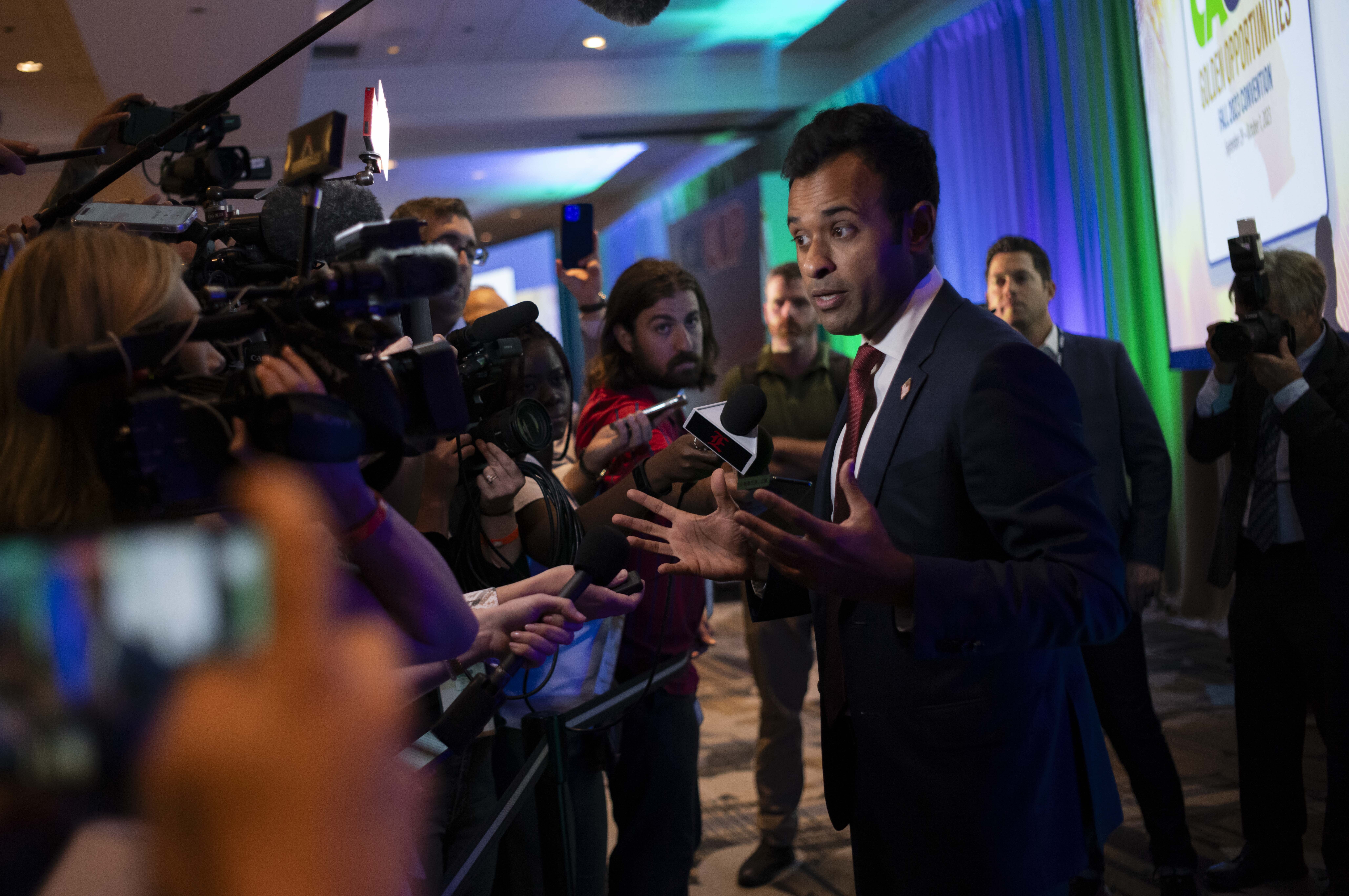Ramaswamy campaign seeks to cut number of candidates in next GOP debate
The third Republican presidential debate will be held Nov. 8 in Miami.


Vivek Ramaswamy's campaign is pushing the Republican Party to change the qualifying and debate format rules for the upcoming GOP presidential debate in Miami on Nov. 8, calling for only the top four polling candidates besides Donald Trump to participate and asking for a single moderator, according to a campaign memo obtained by POLITICO.
The third Republican presidential debate will be held Nov. 8 in Miami, and Trump’s rival campaigns face the most difficult qualifying thresholds yet: Candidates need to have 70,000 individual donors and hit 4 percent in either two national polls, or one national poll and two polls from separate early states.
In the Sunday evening letter, Ramaswamy’s campaign CEO Ben Yoho wrote to Republican Chair Ronna McDaniel that “against the backdrop of a chaotic second debate and the reality of a frontrunner who has declined to participate, we respectfully call on the RNC to revise its approach so that Republican voters can focus on serious candidates who have a viable path to beating Joe Biden — or whomever the Democrats put up to replace him.”
With seven candidates on the stage, the second debate last week in Simi Valley, Calif., saw Fox Business’ two moderators alongside Univision's struggle to control the debate at times, with multiple candidates interrupting each other.
“Thank you for speaking while I’m interrupting,” Ramaswamy said at one particularly contentious point during the debate.
In addition to a smaller stage, Ramaswamy’s campaign also calls for “greater time for candidates to respond to their competitors.”
“Another unhelpful debate in November is not an option: Voters deserve a real choice for who will best serve as our party’s nominee,” Yoho wrote in the memo to the RNC, as well as Committee on Arrangements Co-Chairs David Bossie and Anne Hathaway.
“Voters are not well-served when a cacophony of candidates with minimal chance of success talk over each other from the edge of the stage, while the overwhelming frontrunner is absent from the center of that same stage.”












